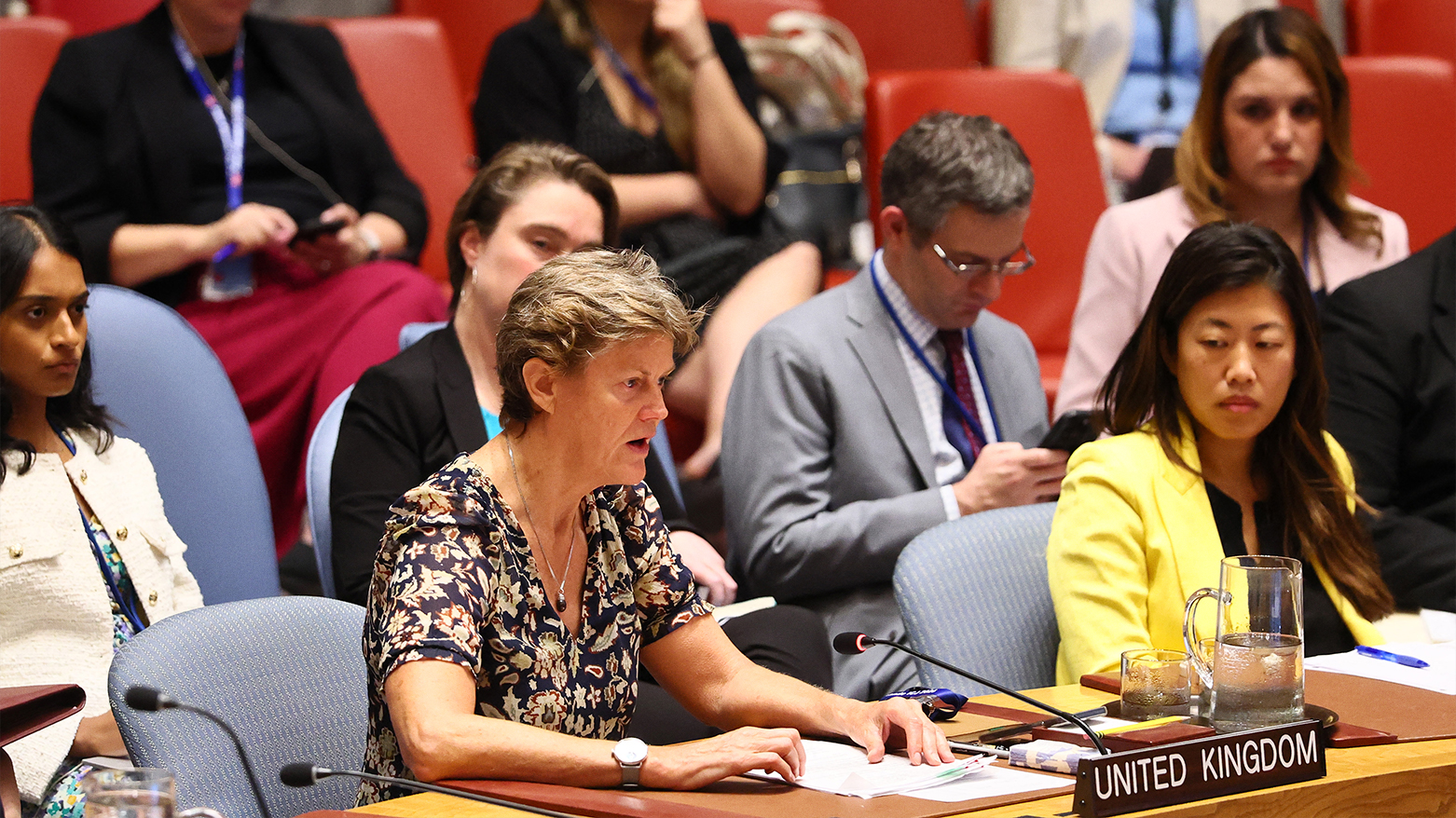UK Ambassador Urges Restraint and Diplomacy in UN Address Amid Iran-Israel Escalation
UK envoy Barbara Woodward urged restraint at the UN, warning of regional instability amid the Iran-Israel crisis. She backed the IAEA, rejected UK involvement in Israeli strikes, and called for renewed diplomacy to prevent Iran from acquiring nuclear weapons.

By Kamaran Aziz
ERBIL (Kurdistan24) - In an address to the United Nations Security Council on Friday during an emergency meeting on the Iran-Israel crisis, United Kingdom Ambassador to the UN Barbara Woodward called for urgent de-escalation, protection of civilians, and a renewed commitment to diplomacy to address Iran's nuclear program and prevent wider regional instability.
“Thank you, President. And I start by thanking the Secretary General, Under Secretary General DeCarlo, and Director General Grossi for your clear and sobering briefings,” Woodward began, acknowledging the international officials who presented updates during the emergency session.
She reiterated the UK's support for the nuclear watchdog’s ongoing efforts: “The UK reiterates its full support for the vital work of the IAEA. We thank the IAEA Director General and his staff for their continued professionalism, diligence, and courage in these complex circumstances.”
Turning to the immediate crisis, Woodward expressed concern over the rapidly intensifying conflict. “The United Kingdom is deeply concerned by the sharp escalation we've witnessed between Israel and Iran over the past week. This is a dangerous moment for the entire region, and further escalation is in no one's interest.”
She emphasized the importance of civilian protection under international law. “Civilians must never be targeted, and we deplore the loss of civilian life and offer our condolences. All parties must protect civilians and civilian infrastructure in line with international humanitarian law. Restraint is vital to protect further regional escalation and loss of life.”
While affirming Israel’s right to security, the ambassador made clear the UK's position on military involvement: “The United Kingdom supports Israel's need to protect its security and people. However, a return to diplomacy is urgent, and we have pressed this with both Israel and Iran. I also want to be clear that the UK did not participate and is not participating in Israel's strikes. We have deployed assets, including jets, to the region as a defensive and precautionary measure only.”
Woodward then addressed Iran’s nuclear program, a central concern of the UK and its allies: “My prime minister has been clear. Iran must never acquire a nuclear weapon. The IAEA's reports show that Iran's high enriched uranium stockpile has grown to alarming levels. Iran's stockpile of 60% high enriched uranium has no credible civilian justification. It is essential that Iran cooperate with the IAEA and bridge the trust gap that the Secretary General spoke of.”
She reaffirmed the UK's long-standing diplomatic engagement alongside its European partners: “The IAEA and the Nonproliferation Treaty are key pillars of international security. For many years, the UK, alongside our E3 partners, has sought a diplomatic solution to Iran's nuclear program. This commitment stands and has never been more urgent.”
Highlighting ongoing diplomatic efforts, she said: “Alongside E3 colleagues and the EU, we are engaging with Iranian Foreign Minister Arachi in Geneva today and using this window of opportunity to support a return to diplomacy and a peaceful resolution.”
Woodward warned of the consequences of further escalation: “Any further escalation, such as restricting IAEA access, diverting nuclear material, or increasing the production of high enriched uranium would intensify the threat to international peace and security posed by Iran's nuclear program.”
She reiterated the UK’s belief in diplomacy as the only viable long-term solution: “Military action cannot put an end to Iran's nuclear capabilities. We have strongly supported and continue to support diplomatic efforts to come to a deal. That is the only way to resolve the nuclear issue for the long term.”
Concluding her remarks, Woodward stressed: “Our objective remains stability in the Middle East. A diplomatic solution is in the interests of all concerned. Even now, it is not out of reach. Now is the time for restraint, calm, and a return to diplomacy and dialogue.”
The ambassador’s address reflects a broader push by the UK and its European partners to avert further regional destabilization through multilateral diplomacy and a strengthened role for the IAEA in ensuring nuclear transparency and safety in Iran.
